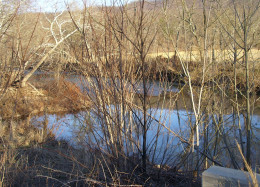Why is it so hard for people to see a bright future for the world and the planet
Why is it so hard for people to see a bright future for the world and the planet?
So many see destruction, war and a planet that will be harsh or destroyed. I do not see it that way at all.
Good question!
We often see what is relected by our own inner self. For some reason we can lean towards negativity more easily. If we exercise our spiritual vision it is possible to counteract our own negativity and see a positive worldThe sun will always shine sometime after a storm. Mother nature dictates that for her world. It's the way things work.
I think it has to do with the way many humans superficially whitewash the past while remembering the worst bits of it on levels they seldom realize. That part, deep inside knows the past wasn't very nice at all and fears a future just as awful and just as unstoppable as the past. But that part of the human mind is stupid. It can't tell the difference between an unchangeable past and a future that isn't inevitable.
Think about how people whitewash their childhoods, sometimes even coming to believe they don't remember anything at all about them or that the escapist fantasies they created to preserve their sanity were actually memories. A person who may have actually been frightened, hurting from pains physical or emotional, and crying herself to sleep more often than not in her childhood may paint a rosy picture of it for herself and others. Yet that bit inside that doesn't forget makes her flinch from things that aren't going to happen, that blow that won't be struck by a gentle hand, that other shoe that will never fall.
Many people seem to have to feel things are always getting worse, that younger generations are growing less instead of more civilized. I've often wondered if it's a way to believe one's own minimization of how crappy the past really was, a way to feel the past wasn't so bad in comparison.
Crime rates in America have been dropping, pretty much since I was born, yet all my life people have claimed things are getting worse. I think the Internet intensifies the tendency to think things are getting worse. All the horrible things people never knew were going on are getting exposed to the electronic sunrise of the information age.
I see that sunrise differently. Yes, we're seeing some disgusting things now that we have a way to see them but now we can get people to help with the cleaning up. It's like those disclosing tablets the dentist made you chew to show you all the gross stuff left on your teeth to get you to brush your teeth better and floss like you meant it. Just like those tablets of dye, the knowledge we can tap into now gives us the power to make more knowledgeable choices. And we can do a whole lot more than keep our teeth healthier with them.
Cool stuff is on the horizon, human rights are improving, science is rising. I see people beginning to feel familial responsibility for other human beings and sharing knowledge without strings attached.
And 3d printers are going to change the world in wonderful ways we can't imagine.I like your horizon too! The mdia is told what and how much that we see and people just need to understand that. One show showed a wor-torn city about 10 miles away from it and there was no war and it was beautiful.
I recently read a book by Barbara Hand Clow called Catastrophobia, in which she answered your question in detail. This book had a profound impact on me and considering how many books I read a year, that is saying something.
It outlines the how and why humanity has such a dark outlook on our future and why there are so many doom and gloom prophecies.
In a nutshell, it shows through exhaustive scientific and archeological research, myths and legends and ancient history that mankind has endured hundreds of geological and weather related environmental disasters in the last 12,500 years, alone. This book describes how mankind basically has had to rebuild civilizations countless times and that the fear of natural disasters is ingrained in our DNA memory.
It shows how volcanic eruptions, great floods, huge earthquakes, astronomical phenomenon, constant warfare and weather related disasters has kept humanity in constant state of fear or survival mode. This state of fear (survival mode) is what creates the tension for easily accepting a gloomy future without ever truly recognizing why.
It is instinctual and since fear is the most primal of human emotions, it triggers in us a fight or flight defense mechanism, to protect our ego from going insane contemplating our future.
Consider it this way, if you instinctual fear the worst and then nothing happens to confirm these fears, it is way for your ego to protect itself. Fearing the worst possible outcome protects your ego by being relieved when your fears aren't realized, however it also allows you to be on guard and prepared, just in case.
A good example of this is the recent discovery of underground cities in Turkey, that has archeologist stumped. The establishments explanation for these dwellings is to hide from raiding armies, which is patently absurd, when you consider the fact that the evidence shows they lived in these underground cities for generations., growing food, raising children and building a functioning environment for decades.
These cities were built and designed out of necessity to an ever changing environment and weather related phenomenon. This is the same survival techniques being used by our own Government in the form of (D.U.M.B.s) Deep Underground Military Bases to house the rich elite and Gov. leaders, due to War and/or a Polar Shift.
If every 3,657 years mankind has to rebuild civilization, then as we near the date of the next cataclysm people become apprehensive.I lived thrugh some bad storms, hurricanes and such and still do not see a bad furture for humans or animals or even the planet.
I too am an optimist however bad storms are one thing, earthquakes, volcanic eruptions and tsunami's are another. Until we have endured living off the land in caves or underground shelters with no electricity eating insects can we really know?
blue, all one has to do is get out of the dity and sepnd a month in the widlerness without electricy, phone or computer access. Then let us know how your (figuretively) survived and what you experienced. City ppl can't see that. Life is all around!
as you may know I don't live in a city but the country and 80% of my diet comes from my garden so I have a better understanding than most, add a wood burning stove and you begin to get the picture.
I think so much of our conditioning is negative so we tend to view the negative and not trust the positive. Each time something good happens, we fear that something negative will follow. In my experience, it takes much discipline to change this conditioning to a more positive one and I still find myself lapsing.
Excellent point!
When I was in high school, I read a book, "The Good Old Days - They Were Terrible!" It describes what life was like in America during the years 1865 - 1918. Here is a brief synopsis of 11 aspects.
1) Pollution - since there was no EPA, factories spewed noxious fumes in the air with impunity. This was exasperated by streets paved with horse manure. People threw their garbage in the streets as well. Pigs used to roam the streets as a form of garbage disposal.
2) Traffic - jams took on an entirely different dimension. Fast moving trolleys were held up by slow-moving horses. In winter, snowplows had no place to move the snow, so that created more problems.
3) Housing - due to the necessity of using fire for heating and cooking, fires were a constant hazard. After the advent of electricity, substandard installation made fire a continuing hazard.
4) Rural Life - people toiled 14 hours a day just to barely sustain themselves. The fruits of their labor could be wiped out with one storm at harvest time.
5) Work - there was no OSHA or minimum wage laws. In the mines and steel factories, when you accepted a job, you accepted its risk. This applied to children as young as 8 years old.
6) Crime - corruption was HUGE in those days. There were parts of New York where policemen went in pairs during the day, and didn't bother to go to at night. There were no telephones for victims to call for help, or fast police cars to respond. Someone could be murdered, and no one would ever know who killed him.
7) Food and Drink - dietary staples were bread and tea. Since meat couldn't be easily preserved, it often was rotted by the time it reached the stores.
8) Health - few cures were known. Malaria, cholera, and yellow fever were epidemics.
9) Education - Often, the teacher didn't know much more than the students. Learning was rote, like training a dog. "Lickin' and larnin' go together; no lickin', no larnin'."
10) Travel - this was slow and dangerous. Ships took 10 weeks to go from England to the US. Most people rode steerage, the cheapest. They had to bring and cook their own food. Keeping clean was a constant problem.
11) Leisure - what few city parks existed were inhabited by bums. There were few activities besides gambling. Most people were too busy struggling to survive to even think about leisure.
Read this book, and you'll see we're living in a Golden Age. Furthermore, things are getting better!Yes, we are still here and will be for a very long time. It is called evolving and acclamating to our surroundings. Thanks for that great answer.
People see what their told to see, & they see it on the T.V & on the news & in the newspapers etc..They show every single piece of tragic news they can find in a desperate attempt to depress the people, so they become brain dead consumer tele addicts..The very same people who buy into their propaganda don't ever visit the countryside, & see for themselves that the world isn't full of aids ridden crack addicted pit bulls!..The world is a beautiful & safe place until you start believing their lies, & 99.999% of the people in the world are good loving people..All the time though governments around the world do what they do best, which is to cause as much misery & wars as they can in order to gain more control of the people..At the same time though people have to or should ask themselves, what are they doing to stop any of the bad stuff that's going on in the world today....I'll give a very very easy example of how to start save the world without doing anything, which is to avoid the big business controllers of the economy & the people like MacDonalds....All people have to do is avoid corporations like that & sit at home, but they can't even do that they have to go there & buy their crap food.
I liked all you answer except the McDonald's one. Do your research on that one. Personal responsibility is at a all time LOW in today's world. Blaming others isn't cutting it anymore.
MacDonalds are the classic example of what's wrong with the world, it's just that people like you can't see it..Their food has been proven in the UK to be poisonous, & the waste they throw away everyday is a total disgrace & a waste of energy
I think a lot of it comes from our ego as a whole of people. We think that we are in control of the earth and that we have so much effect on it. We really only effect a small portion of the earth and only seem to harm it in a way that effects us but not the planet as a whole.
Mother earth is much more powerful than all of our efforts to control it. Probably this notion that we are destroying our earth is politically motivated. We are told that we are and so we need to vote for so and so or such and such to save the world.
I notice that if I turn off the mass media and simply take the time to enjoy nature that there is plenty of reason to believe in a beautiful world for eons to come.Oh yes the media and all it's hype. Ppl need to turn that disaster machine off for more than a week and really get out in nature. It is a beautiful world!
Related Discussions
- 21
Is the world getting worse or better?
by Levertis Steele 12 years ago
Is the world getting worse or better?
- 22
Is society getting gradually better or worse? (Over the course of all history.)
by Nate Ahern 13 years ago
Is society getting gradually better or worse? (Over the course of all history.)
- 26
DO YOU THINK THAT THE MUSIC INDUSTRY IS GETTING WORSE OR BETTER??????
by Britney Knowles 12 years ago
We've all seen how the music industry has evolved. Watching artists like Rihanna grow is tremendous. Started as a pretty hot teen with her first single 'Pon De Replay' and grown up to be a Wildcat and a sex icon but all in all she is my best artist. Many artists are rising. Some just keep the fire...
- 35
Is your spelling getting worse?
by Russ Moran - The Write Stuff 10 years ago
Is your spelling getting worse?I prided myself as a kid on my excellent spelling. As the years go by it's getting constantly worse. I think it's the fault of Spell Checker, a blessed little program but one that makes us rely on it. Are you having the same experience?
- 10
Do you believe the younger generations are getting worse and worse nowadays?
by samanthamayer 8 years ago
Do you believe the younger generations are getting worse and worse nowadays?Interpret this question as you wish. Generally I am thinking about attitude and behavior. It seems to me that many people DO feel that youth are getting worse in this regard.
- 5
At what age does a person’s temper starts getting worse?
by ngureco 12 years ago
At what age does a person’s temper starts getting worse?













